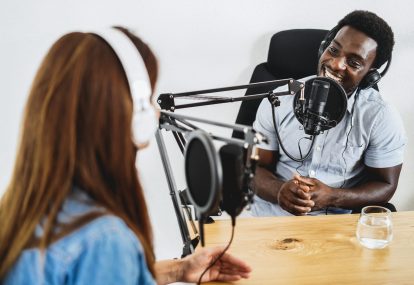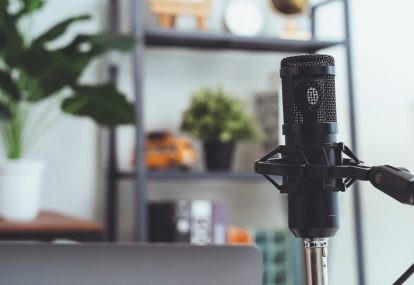If you are a podcasting neophyte, it is understandable (if not expected) that you have a lot of questions. If it’s any consolation, you are not alone. It’s safe to assume other podcasting newbies are also trying to find answers as they navigate the exciting world of podcasting.
However, while questions can vary from one podcaster to another, common themes often emerge. When it comes to podcasting, the following are three of the most prevalent questions asked and we’ve answered them all for you.
What equipment do I need?
Podcasting equipment can be complex or simple, depending on what you want. If you’re going for the latter however, a quiet room and a good microphone would be enough to get you started. At the bare minimum, you’ll need a recording software and a microphone. If you are not willing to splurge until you know you’re doing podcasting for good, you can start with a lavalier microphone or a USB headset.
For the uninitiated, lavalier microphones are those small microphones that are clipped on the lapel. You can easily plug them into a computer, mixer, or recorder and they are deemed ideal for those fast and portable in-person interviews.
If you are feeling fancy, the Rode Podcaster Dynamic microphone would be a good investment. High-end alternatives like the Heil PR40 would also be ideal if you have a permanent recording studio. Throw a shock mount, boom arm, and pop filter in the mix and you’ll have a setup that can rival that of the pros.
As far as recording software goes, you can use Garageband for Mac or the free Audacity software. There are also other topnotch recording alternatives like Pro Tools or Adobe Audition if that’s what you’re looking for. When conducting interviews, you can use Pamela, eCamm’s Call Recorder, or Skype.
How do I record my podcast?
Again, depending on what you want, you have the option to record the show directly onto your computer or use a recording device that’s portable. Many podcasters are using the former without any issues.
The upside of using a separate handheld recording device however is you don’t have to worry about the background noise from your hard drive or computer. Also, in the event that your computer crashes, you still have your recording.
Once you’ve decided on the software and the recording method, your next focus should be to ensure you are able to produce the best audio quality possible. Make removing background noise easier by recording a small section of audio before you begin to talk. It will then be used as a baseline for background noise cancellation.
In addition, to ensure your audio is impeccable, consider it wise to invest in the help of professionals. The team at Podcast Engineers for instance, can polish your audio so you’ll not only be able to present a professional sounding audio, you’ll also have time to work on other podcasting essentials that require your immediate attention.
What are the podcast hosting options available?
Many podcasters don’t host their podcasts on their own websites primarily because of lack of bandwidth. You have to remember that audio files will require bandwidth. In addition, your listeners will be streaming and downloading the files so you have to make them easily accessible. Services that specialise in podcast hosting is undoubtedly your best bet. The most popular ones include Soundcloud, Blubrry, and LibSyn.
Now that you know the basics, are you ready to take the podcasting world by storm? Let us know how it goes!
Share this post!




